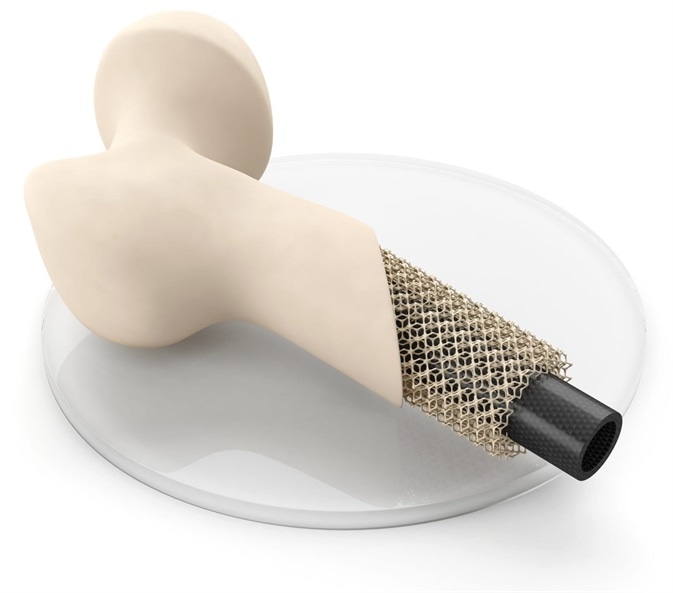Plasma probes and mass spectrometry systems from Hiden Analytical aid in the development of plasma-modified medical polymers by providing comprehensive plasma characterization.

Image Credit: Hiden Analytical
Polymers play a vital role in medicine, they have widespread applications in drug delivery systems and biomedical devices because of their easy fabricability, low cost, chemical stability, and mechanical properties.
An efficient technique to facilitate the use of polymer devices in vivo by increasing their biocompatibility is plasma surface modification.
Plasma functionalization efficiently allows the modification of the surfaces of polymers while still leaving most material intact. There are several possible modifications using this technique:
- Using plasma etching to create microscale roughness to aid cell adhesion and wettability.
- Increasing strength and altering other mechanical properties by increasing crosslinking within the polymer surface with inert gas plasma (such as argon).
- Using reactive gas plasmas with additives like sulfur hexafluoride, tetrafluoromethane, ammonia, oxygen, nitrogen in order to introduce functional groups to the polymers’ surface. An example of this is increasing the hydrophobicity of a polymer surface by depositing non-polar functional groups.
Researchers have been able to construct surfaces capable of controlled-rate drug release, replacement tissues and organs, tissue engineering scaffolds and highly biocompatible blood-contacting medical devices because of the surface properties imparted by these techniques.
Accurate characterization of physicochemical processes during surface treatment is what developing plasma treatment techniques for polymer-based medical devices depends on.
One mass and energy quadrupole mass spectrometer explicitly built for this purpose is the Hiden EQP system.
The EQP plasma analysis system is ideal for use in the development of plasma surface treatments for medical polymers because of its ability to provide accurate analysis of plasmas and species evolved from medical polymer surfaces during plasma surface functionalization.
About Hiden Analytical
 Hiden Analytical was founded in 1981 and is presently situated in a 2,130 m2 manufacturing plant in Warrington, England with a staff of over 50. As a privately owned company their reputation is built on creating close and positive relationships with their clients. Many of these customers are working at the forefront of new technology - in the fields of plasma research, surface science, vacuum processing and gas analysis. To maintain this reputation we have, over the years, established exceptional levels of technical expertise in these areas within the company.
Hiden Analytical was founded in 1981 and is presently situated in a 2,130 m2 manufacturing plant in Warrington, England with a staff of over 50. As a privately owned company their reputation is built on creating close and positive relationships with their clients. Many of these customers are working at the forefront of new technology - in the fields of plasma research, surface science, vacuum processing and gas analysis. To maintain this reputation we have, over the years, established exceptional levels of technical expertise in these areas within the company.
Hiden Analytical is committed to providing systems which meet specifications of both new and existing clients, but further, enable the advancement of their work, whether it be pure research or the improvements or monitoring of products and process performance. Hiden Analytical have a common vision, not only to supply the systems and instruments with first class performance specifications, long term reliability and professional service support, but also, and in many cases more importantly, to maintain close contact to ensure that our systems provide all that our customers expect, and more, from their investment in their organisation.
Hiden has had an ISO 9001 Quality System since 27 June 1995, registered through National Quality Assurance Ltd., which itself is accredited by the UK’s national standardisation agency UKAS (UK Accreditation Service). The system has been reviewed since then by assessor visits every nine months, including on-site installation. The Quality System was upgraded to the new ISO 9000:2000 standard in late 2002.
Other notable products cover residual gas analysis to ultra high vacuum (UHV) levels with the HAL series of quadrupole mass spectrometers. For plasma diagnostics, the EQP combined mass / energy analyser and ESPION advanced Langmuir probe are market leaders. Gas and liquid analysis from atmospheric pressure or process pressures is achieved by the QIC series of instruments incorporating the acclaimed quartz inlet capillary (QIC). The latest development is the CATLAB microreactor module for the combined roles of catalyst characterisation and rapid, reproducible screening of catalyst activity.
Sponsored Content Policy: News-Medical.net publishes articles and related content that may be derived from sources where we have existing commercial relationships, provided such content adds value to the core editorial ethos of News-Medical.Net which is to educate and inform site visitors interested in medical research, science, medical devices and treatments.